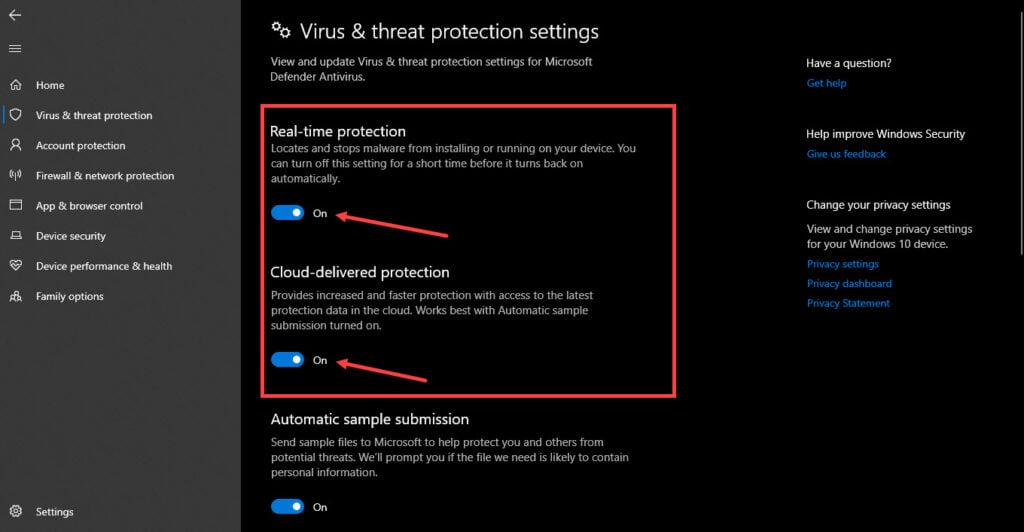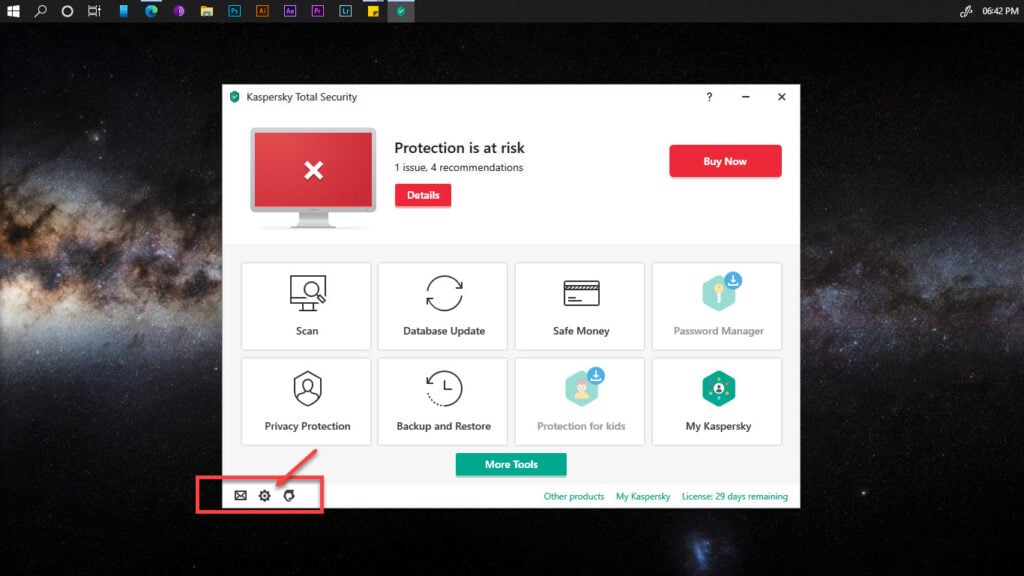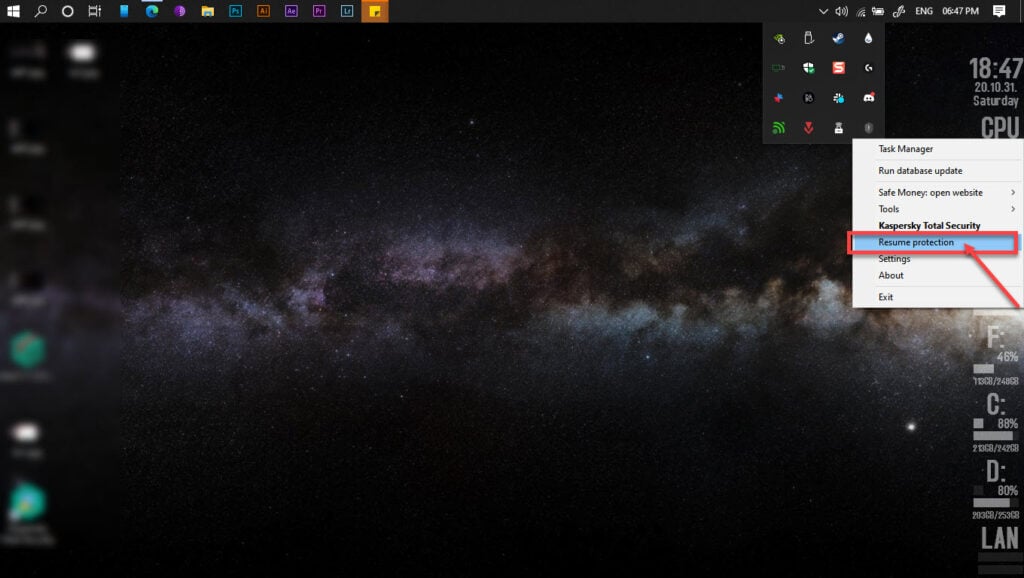A good anti-virus forms the security backbone of any PC. Not only does it protect your PC from any malware or viruses you might run into but it also keeps a check on things like your online security and privacy.
There a lot of reasons why you’d want an antivirus on your PC and there a few reasons why you’d want to disable it at times.
In this article, we’re going to talk about how to disable antivirus in Windows 10. Check out separate guides for the default Microsoft Defender and any other third-party anti-virus you might have installed.
Also read: What is code-signed Malware and ways to protect your device
Disabling Microsoft Defender in Windows 10
Microsoft Defender is the default, built-in antivirus in Windows 10 that does a remarkable job of keeping your PC safe; and not to mention, it comes for free with Windows.
While disabling Microsoft Defender isn’t advised, if you absolutely need to, here’s what you need to do.
Step 1: Click on the Show hidden icons (arrow) button in the taskbar. Then right-click on the Windows Security icon and click View Security Dashboard.

Step 2: Then click on Virus and Threat Protection, located to the left of the window.

Step 3: Under Virus and threat protection settings, click on Manage settings.

Step 4: Here you can toggle Real-time protection and Cloud-delivered protection on or off.

Note that Microsoft Defender will automatically turn itself off when it detects another active anti-virus is installed on your PC.
Also read: How to enable Remote Desktop in Windows 10?
Disabling Kaspersky on Windows 10
Note that different antiviruses will have different procedures; however, in case you aren’t using Kaspersky, this will still give you a general idea of how to proceed.
Step 1: Fire up Kaspersky and click on the Settings icon at the bottom-left.

Step 2: Under the General tab you’ll see the Protection setting. You can toggle your anti-virus on or off from here.

You can resume protection at any time by simply going to the Kaspersky icon on the taskbar, right-clicking it and selecting Resume Protection.

Also read: How to check GPU temperature in Windows 10?






